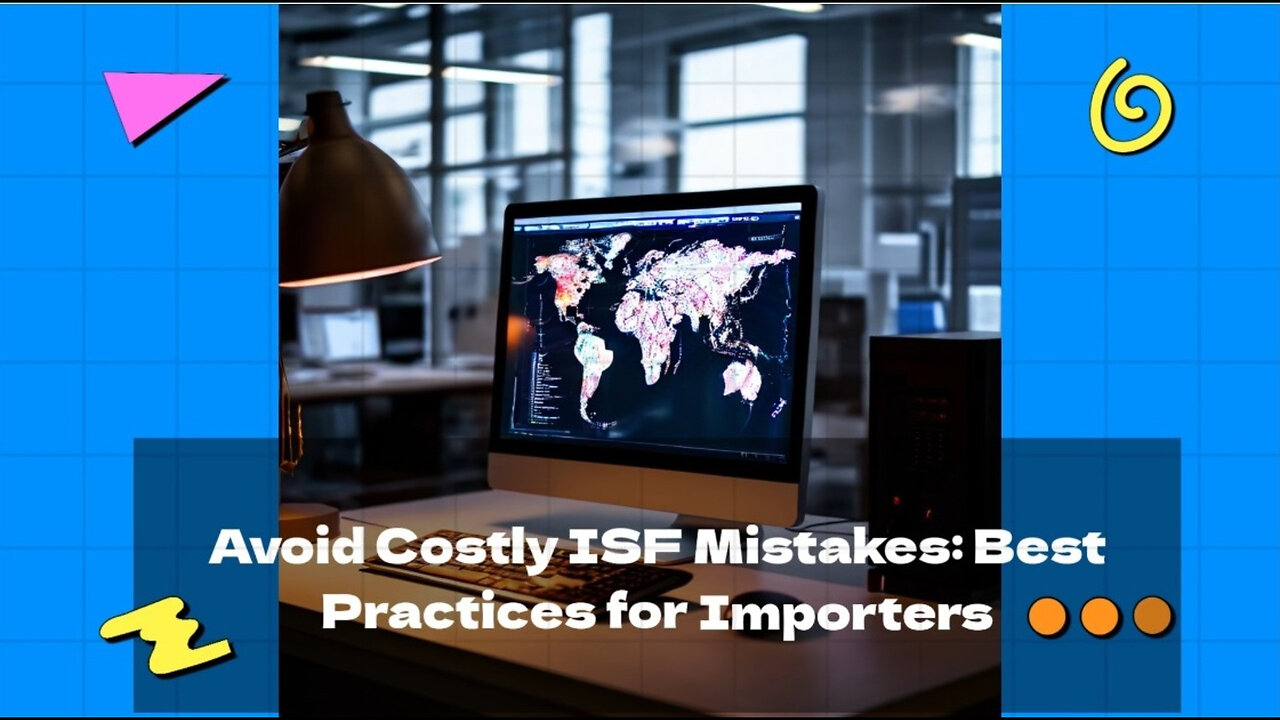Premium Only Content

Unlocking Success: Avoid These Costly Errors in ISF Filing
ISF Checklist || 805-970-7918 || contact@isfchecklist.com || www.isfchecklist.com
In this episode, we discussed common errors that importers often make when filing an Importer Security Filing (ISF) and provided best practices to avoid these costly mistakes. Failing to file the ISF on time can lead to penalties and delays in cargo release, so it is crucial to establish a timeline and submit the filing in a timely manner. Providing inaccurate or incomplete information on the ISF can result in delays, inspections, or even seizure of goods, underscoring the importance of double-checking all details before submission. Neglecting to update the ISF when changes occur can lead to penalties, additional fees, or seizure of goods, highlighting the need to communicate changes promptly. Using incorrect HTS codes when filing the ISF can result in higher duties, delays, or non-compliance issues, emphasizing the importance of proper classification. Lastly, retaining documentation related to the ISF filing is crucial for future reference, audits, and dispute resolution. By adhering to these best practices, importers can ensure a smooth customs clearance process and avoid unnecessary costs.
#usimportbond
#isfcustomsbroker
#uscustomsclearing
#isfentry
Video Disclaimer Here: This video is purely educational and has no ties with the US government.
00:51 - Timely Filing: Submit the ISF at least 24 hours before cargo loading to avoid penalties and delays.
01:41 - Accurate Information: Double-check all details to prevent errors like incorrect bill of lading numbers or manufacturer details.
02:14 - Update Changes: Notify customs of any modifications promptly to avoid penalties, fees, or goods seizure.
02:47 - Correct HTS Codes: Ensure proper classification for duty rates and compliance with trade regulations. Retain Documentation: Keep records of all import documents for future reference, audits, and dispute resolution.
-
 20:06
20:06
The Why Files
4 days agoSTRIPPED: When Earth's Shield Fails the Dead Will Rise | The Plasma Apocalypse
185K116 -
 12:26
12:26
EvenOut
12 hours ago $11.64 earnedWe Got Cosmestic Surgery That Went Wrong! Twin Switch-Up!
51.9K11 -
 1:15:07
1:15:07
Ami's House
19 hours ago $9.57 earnedWhat an ACTUAL Military Expert Thinks of the War in Gaza – Nick Freitas | FULL EP
30.6K21 -
 2:54:02
2:54:02
TimcastIRL
10 hours agoLiberal Media CAUGHT In BOGUS LEAK, Trump DID NOT Fire Mike Waltz, HE PROMOTED HIM | Timcast IRL
237K131 -
 9:05:24
9:05:24
MyronGainesX
18 hours ago $28.08 earnedSam Seder Embarrasses Ethan Klein, The Truth On MLK's Murder, Panel Debate w/ Anton Daniels
86.2K25 -
 1:09:38
1:09:38
Man in America
14 hours agoEXPOSED: How Militaries Worldwide Are Engineering DEPOPULATION w/ Todd Callender
81.4K53 -
 8:00:02
8:00:02
SpartakusLIVE
12 hours agoNEW Update, NEW Weapons, NEW META?!? || Quads in VERDANSK
38.6K -
 5:14:28
5:14:28
Jokeuhl Gaming and Chat
9 hours agoEmpyrion - Galactic Survival Long Range Jump Aquired
50.1K1 -
 4:42:30
4:42:30
Right Side Broadcasting Network
1 day agoLIVE REPLAY: President Trump Gives Commencement Address at University of Alabama - 5/1/25
175K23 -
 16:58
16:58
T-SPLY
16 hours agoDems’ Bad News: El Salvador Rejects Abrego, Democrats Fume!
117K67